MTSU Aerospace Department maintenance management program coordinator and professor Joe Hawkins and other faculty have mentored another outstanding group of students who will likely land excellent jobs in the industry.
In a year when the COVID-19 pandemic closed doors of opportunity for many, five of Hawkins’ students proved their resolve by earning coveted National Business Aviation Administration Charities scholarships.
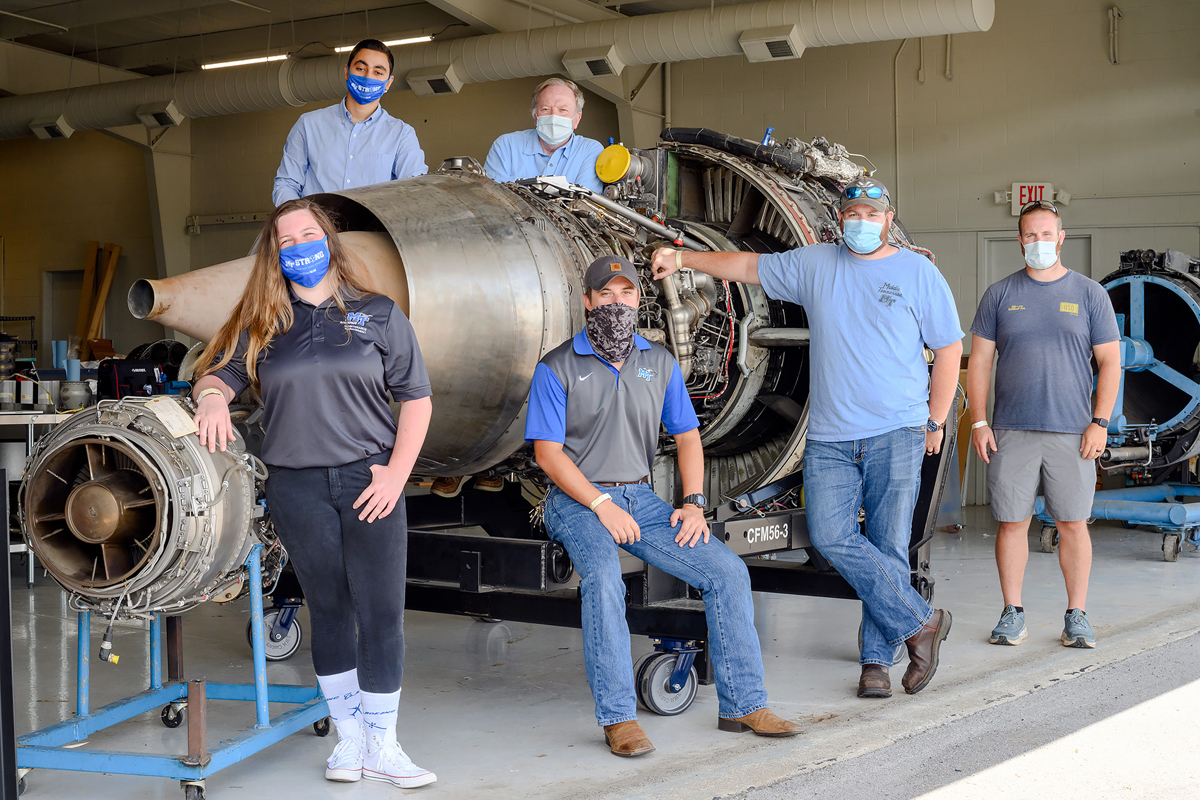
At the MTSU Flight Operations Center maintenance hangar at Murfreesboro Airport, National Business Aviation Administration Charities scholarship recipients, front row from left, Aubrey Vest, Logan Knight, Tanner Jones and Brandon Snell and back row, from left, Wagdy Hanna and Joe Hawkins stand with an airplane engine they have trained on as undergraduates. (MTSU photo by J. Intintoli)
The scholarship program, supported by member donors, offers nearly $100,000 annually in cash awards as tuition reimbursement for enrolled students and nearly the same amount in monetary and training awards for working professionals in business aviation, including pilots, maintenance professionals, schedulers, dispatchers, flight attendants and flight technicians.
The MTSU student recipients include:
• Aubrey Vest, a rising senior, is from Enville, Tennessee, and scheduled to graduate May 2022. She received a scholarship to study several different Dassault Falcon Jet systems during a 31-day maintenance initial and avionics course at a CAE (Certified Association Executive) Inc. training center in Morristown, New Jersey.
• Brandon Snell, a senior graduating Saturday, May 8, is from Murfreesboro. He also received a scholarship to study several Dassault Falcon Jet initial maintenance systems during a 14-day course at a FlightSafety Training Center in Dallas, Texas.
• Wagdy Hanna, a senior graduating May 8, is from Nashville, Tennessee. His scholarship allowed him to study the Challenger 300 series maintenance initial course Nov. 30-Dec. 11, 2020, at the CAE Training Center in Dallas.
• Tanner Jones, a December 2020 graduate, is from Murfreesboro and has been a mechanic with the MTSU Flight School since 2019. His scholarship was from Textron Aviation, studying the Citation CJ3/CJ3+ Series maintenance initial training for 10 days.
• Logan Knight, a senior graduating May 8, is from Bartlett, Tennessee. His scholarship was with Williams International, studying the FJ Series engine line maintenance.
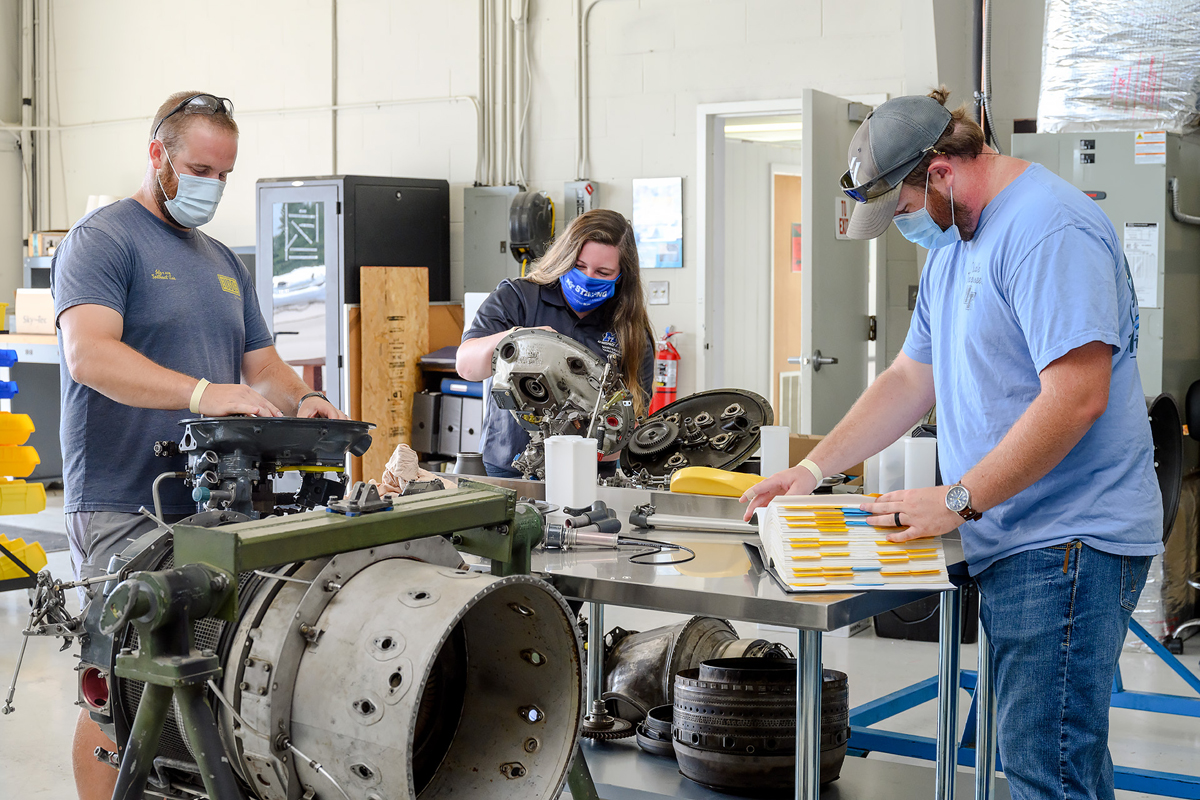
MTSU aerospace maintenance management seniors Brandon Snell, left, Aubrey Vest and Tanner Jones perform training tasks in the Flight Operations Center maintenance hangar at Murfreesboro Airport. They are among five MTSU students who received National Business Aviation Administration Charities scholarships to attend out-of-state training for up to two weeks during the 2020-21 academic year. (MTSU photo by J. Intintoli)
Vest said the “amount of new technology I have come to learn is astounding. I’ve known for a while that computerized flight was the ‘next big thing,’ but learning the new-age fly-by-wire systems of the Falcon 7X has opened my eyes to the complexity of tomorrow’s aviation industry.
“Almost everything is controlled by computers and wires on this aircraft, with few mechanical connections existing on the airframe. Going from aircraft completely made of cables and pulleys to a completely computerized aircraft has been tough, but I cannot wait to see what more I can learn about this type of technology.”
A Cairo, Egypt, native, Hanna said he “was nervous at first for being the one with the least experience in the classroom, but the CAE instructors were helpful when it came to explaining the materials and answering all questions.
“I learned a lot about all different Challenger series systems and I had the opportunity to do an engine run and taxi in the simulator. Also, I was able to expand my network with my classmates and instructors who had a lot of knowledge in the aviation field.”
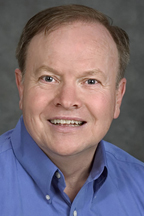
Joe Hawkins
Snell said going to FlightSafety “was a big eye-opener to the technology, how detailed and user-friendly maintenance manuals are and the instructors were unbelievable with how much they knew about the aircraft.”
Reflecting on the trends for MTSU students, Hawkins said “every year, we are delighted our students are selected for a variety of these top-tier training programs. These awardees are reflective of the high-caliber students in the program, and their academic success in a very intense and comprehensive curriculum.”
Hawkins said corporate operators “do not trust the care and maintenance of their 70- to 80-million dollar jets to anyone but those who are specifically trained and experienced. … These corporate classes of aircraft are the driving force and development of emerging and future aircraft technologies. … Completing these training courses will lead to long-term careers in the corporate flight departments of many Fortune 500 companies and other individual operators.”
— Randy Weiler (Randy.Weiler@mtsu.edu)
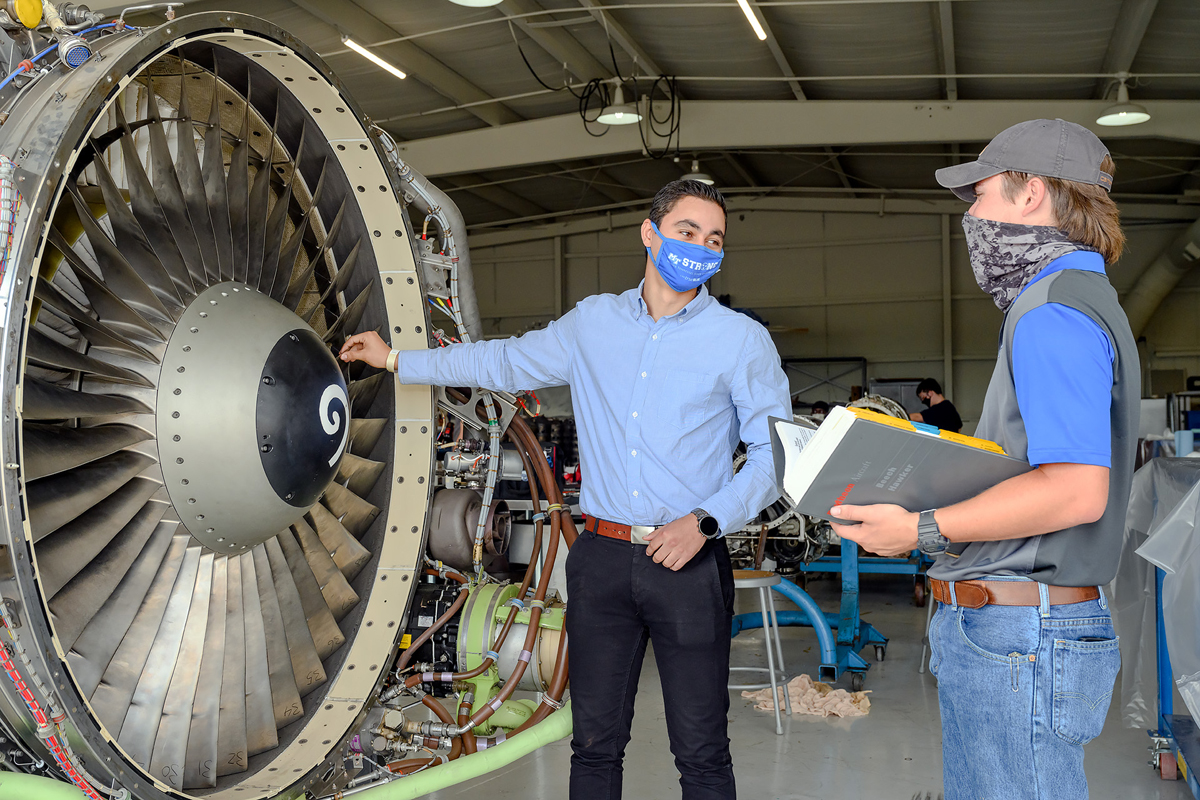
MTSU seniors Wagdy Hanna, left, and Logan Knight discuss topics related to a jet engine they are training on in the Flight Operations Center maintenance hangar at Murfreesboro Airport. They are among five MTSU students who received National Business Aviation Administration Charities scholarships to attend out-of-state training for up to two weeks during the 2020-21 academic year. (MTSU photo by J. Intintoli)
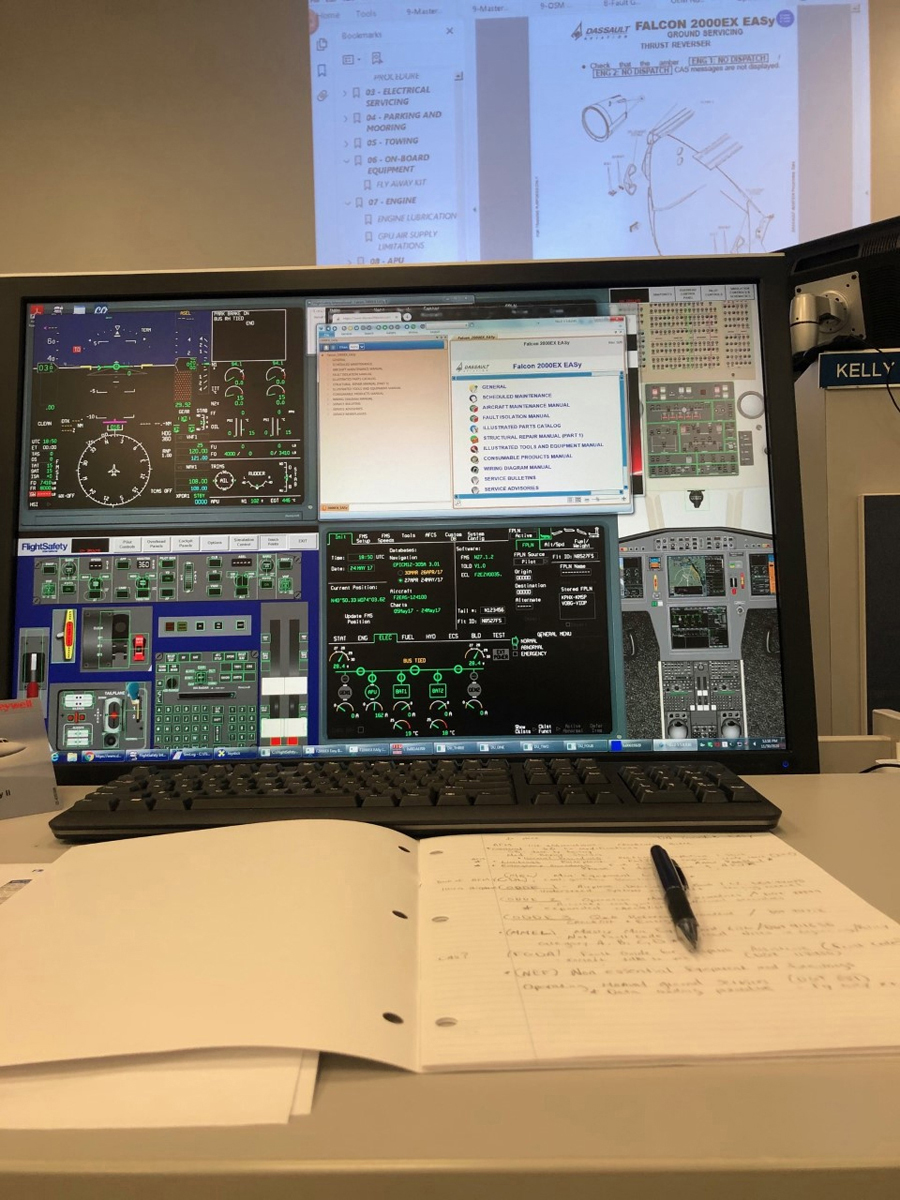
MTSU senior Brandon Snell of Murfreesboro, Tenn., shows some of the computer technology and note-taking involved with the Falcon 7X jet system he has been training on during his time with FlightSystems in Dallas, Texas. Snell will graduate Saturday, May 8, with a bachelor’s degrree in aerospace maintenance management. (Submitted photo by Brandon Snell)

COMMENTS ARE OFF THIS POST